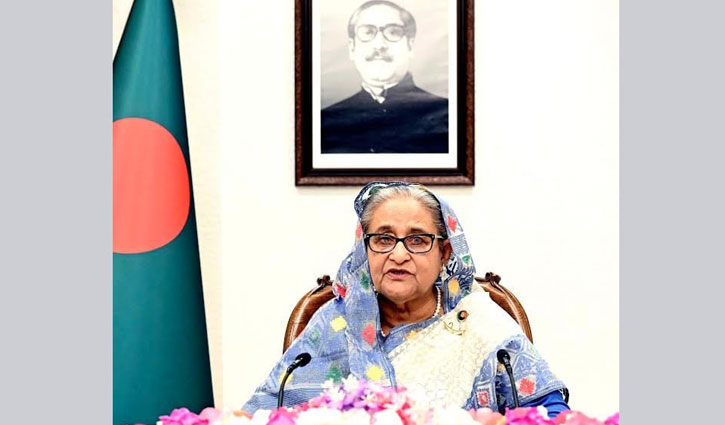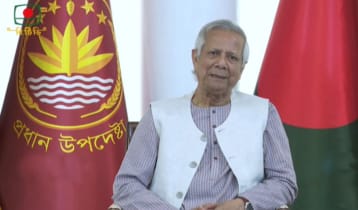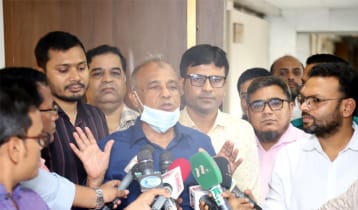PM for addressing climate displacement to avert future human crisis
Desk Report || risingbd.com

Prime Minister Sheikh Hasina on Wednesday (November 29) called for International support for the countries affected worst due to climate displacement, suggesting five things need to be addressed on human mobility to protect them from human crisis.
"Most climate displacements take place within national borders and across borders in some dire situations. The worst-affected countries need international support and solidarity to prevent such situations from turning into a humanitarian crisis," she said.
The premier made the remarks in a video statement that broadcast at the high-level segment on "Climate Impact on Human Mobility: A Global Call for Solutions" in the three-day 114th Session of the International Organisation for Migration (IOM) Council at its headquarters at Geneva in Switzerland.
The Prime Minister said those who displaced or trapped due to climate change need to have access to basic services, social protection, and livelihood options.
"The adverse impacts on their host communities also need to be addressed in an inclusive manner," she said.
It is estimated that climate change could displace 216 million people by 2050, Sheikh Hasina said, adding that among these, 40 million alone would be in South Asia. In Bangladesh, 20 per cent of our population lives along the coastal belt.
"Sea-level rise, salinity intrusion, frequent floods, and severe cyclones make them vulnerable to forced displacement. Such displacements are happening at a faster pace than we think," she warned.
Bangladesh's coastal district of Cox's Bazar now hosts 1.2 million forcibly displaced Rohingyas from Myanmar, the premier said.
"Some of these people fall victim to trafficking networks with security risks for the entire region. Such mixed migration flows make the issue of climate mobility even more problematic," she added.
The Prime Minister mentioned that Bangladesh believes that the impact of climate change on human mobility should be placed high on the international agenda.
She also said that Bangladesh is working together with IOM and other partners to highlight the need for effective solutions.
"I feel assured that many Small Island Developing states are also taking leadership on this. We are pleased that COP-28, GFMD, and other international forums are attaching due importance to it," Sheikh
Hasina said.
In Bangladesh, she said that the government has started taking special initiatives for climate migrants within our modest resources.
"Under my flagship Ashrayan project, we are constructing 139 multi-storey buildings in Cox's Bazar to provide safe housing to 4,400 families displaced due to a severe cyclone," the premier said.
She also said that this world's largest climate rehabilitation project is expected to become a local fishing, tourism, and wind power hub.
The Prime Minister offered five suggestions to address the issue of impact of climate change on human mobility.
These are:
First, we need to address the climate impact of human mobility in a rights-based manner in line with the Global Compact on Safe, Orderly, and Regular Migration;
Second, we should consider the situation of climate migrants through the lens of climate justice to find context-specific solutions for the loss and damage they suffer.
Third, we must get prepared at local, national, and international levels for looking at migration as a climate adaptation strategy where it proves to be the best possible solution;
Fourth, we need to review the existing international protection standards to repurpose them for climate migrants, especially women, children, and other vulnerable groups; and
Fifth, we should invest in well-researched data and evidence on the impact of climate change on human mobility to build an objective case for it beyond narrow political considerations.
Parvez/Nasim


















